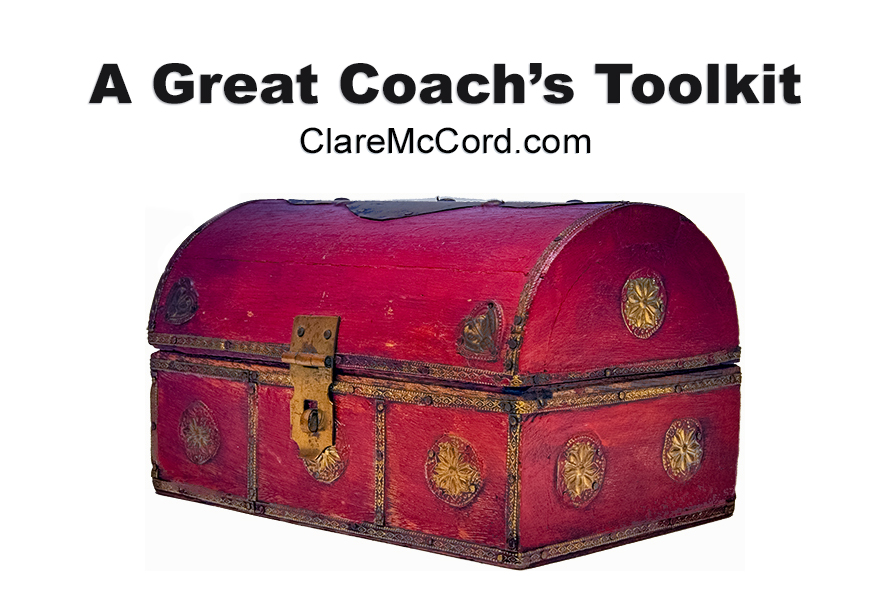A great coach employs a constellation of tools to facilitate personal or professional outcomes. Many of the coach’s most important tools are invisible – talents, skills, and abilities which enable them to facilitate results, other tools include resources such as instruments, protocols, methods and materials.
Here are five essentials that I believe are always in the toolkit of a top-notch coach:
Presence
Great coaches are fully present and engaged with a client. They are able to listen intently but maintain an open focus to facilitate expanded or innovative perspectives. Being actively present for each client is a talent, but also a skill that is built over time, and it cannot be faked. Clients know if their coach is distracted, spends too much time talking about themselves or other clients. Great coaches have the ability to create a space of transformative engagement where being in the now opens vistas that facilitate the future.
Interpersonal Awareness and Skill
A great coach has developed excellent interpersonal “radar” and communication skills. Successful facilitators have tools to understand a client’s unique personality and learning style, so they can work most effectively together, navigate challenges, and pace work well. Crucial skills include active listening, interpersonal framing techniques, and the ability to ask effective questions. For example, great coaches check in and ask for feedback regularly to see if clients feel that they are present and responsive. Simple questions go a long way: “Did that session help? How do you feel our work together is going? Anything I can improve to help you better?” Importantly, great coaches are mindful of the honor and delicacy of a client relationship – the deep trust and vulnerability that a client brings to an engagement.
Ability to Frame, Reframe, and Guide
One of my mentors always said, “You can’t play tennis without a net.” Whether the client’s goals are personal or professional, project facilitation tools are critical. The ability to frame an interpersonal engagement to accomplish goals requires an understanding of each unique client in context of the learning and development process. Armed with these tools, the great coach can help guide a transformative process while not losing sight of the need for tangible milestones, outcomes and evaluation.
Resources
Great coaches have the best tools and know which tools are best. In addition to excellent professional and interpersonal skills, the great coaching toolkit includes access to best-practice professional resources. These range from techniques and skills we employ to facilitate outcomes, those we teach clients to use, and referrals to materials, online resources or even other professionals that can help clients develop and grow. The best coaches don’t just have an impressive array of resource tools, they have the experience, judgement, and wisdom to choose the best ones at the optimal times for each client.
Simplicity, Humor, Learning Attitude
Finally, a great coach keeps the engagement fun, makes it as simple as possible and maintains an attitude of learning – the willingness to learn from/with the client. Clients engage a coach in addition to busy and stressful lives, so they should look forward to the coaching space as a time to enjoy self-development. Keeping things simple helps clients see and appreciate their incremental goals and increases motivation to keep going. True engagement is learning WITH the client; this atmosphere of shared learning and discovery is where the magic happens.
Explore What Coaching Can Do For You
Coaching has been such an integral and rewarding part of my professional and personal life. I hope that everyone can, at some point, experience the transformative results of coaching. I invite you to contact me to explore how coaching can help you on your professional or personal journey.



